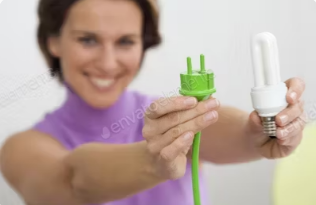In today’s digital age, personal computers are essential tools for work, entertainment, and connectivity. However, the energy consumption associated with operating a PC can contribute to higher electricity bills and environmental impact. By implementing energy-saving strategies and optimizing your PC usage, you can reduce your electricity consumption and contribute to a more sustainable computing environment. Here are some valuable tips to save electricity while using your PC:
- Opt for Energy-Efficient Hardware: When purchasing a new PC or upgrading components, opt for energy-efficient hardware with high Energy Star ratings. Choose power-saving features like low-voltage processors, LED monitors, and solid-state drives that consume less power without compromising performance.
- Enable Power-Saving Settings: Take advantage of built-in power-saving settings in your operating system to optimize energy usage. Configure your PC to enter sleep or hibernate mode after a period of inactivity, reducing power consumption during idle periods. Adjust display brightness and screen timeout settings to further conserve energy.
- Turn Off Unnecessary Peripherals: Disconnect or turn off unnecessary peripherals such as external hard drives, printers, speakers, and USB devices when not in use. These peripherals continue to draw power even when idle, contributing to unnecessary electricity consumption.
- Utilize Power Strips with Timers: Use power strips with timers or smart plugs to schedule your PC’s power consumption based on your usage patterns. Set timers to automatically turn off your PC and peripherals during off-peak hours or when not in use, saving energy and reducing standby power consumption.
- Clean and Maintain Your PC: Keep your PC clean and well-maintained to ensure optimal performance and energy efficiency. Regularly clean dust buildup from fans, vents, and components to prevent overheating, which can increase energy consumption. Proper maintenance prolongs the lifespan of your PC and reduces power usage.
- Optimize Software and Applications: Remove unnecessary startup programs, background processes, and resource-intensive applications that drain system resources and consume excess power. Close idle applications and browser tabs to free up system memory and reduce power demands on your PC.
- Utilize Power Management Software: Install power management software tools that monitor and optimize energy usage on your PC. These tools can provide insights into power consumption patterns, suggest energy-saving settings, and help you track and reduce your overall electricity usage.
- Upgrade to Energy-Efficient Monitors: If you use a desktop PC with an external monitor, consider upgrading to an energy-efficient monitor with LED backlighting and power-saving features. Adjust screen brightness, enable sleep mode, and power off the monitor when not in use to conserve energy.
By implementing these PC tips to save electricity, you can reduce your environmental footprint, lower your electricity bills, and enhance the energy efficiency of your computing setup. Embrace sustainable computing practices to promote energy conservation and responsible technology usage in your daily computing routines. Power up your savings and contribute to a greener, more efficient computing environment today.
